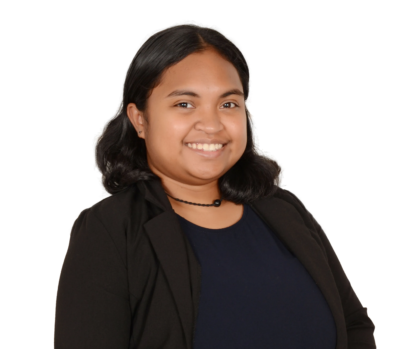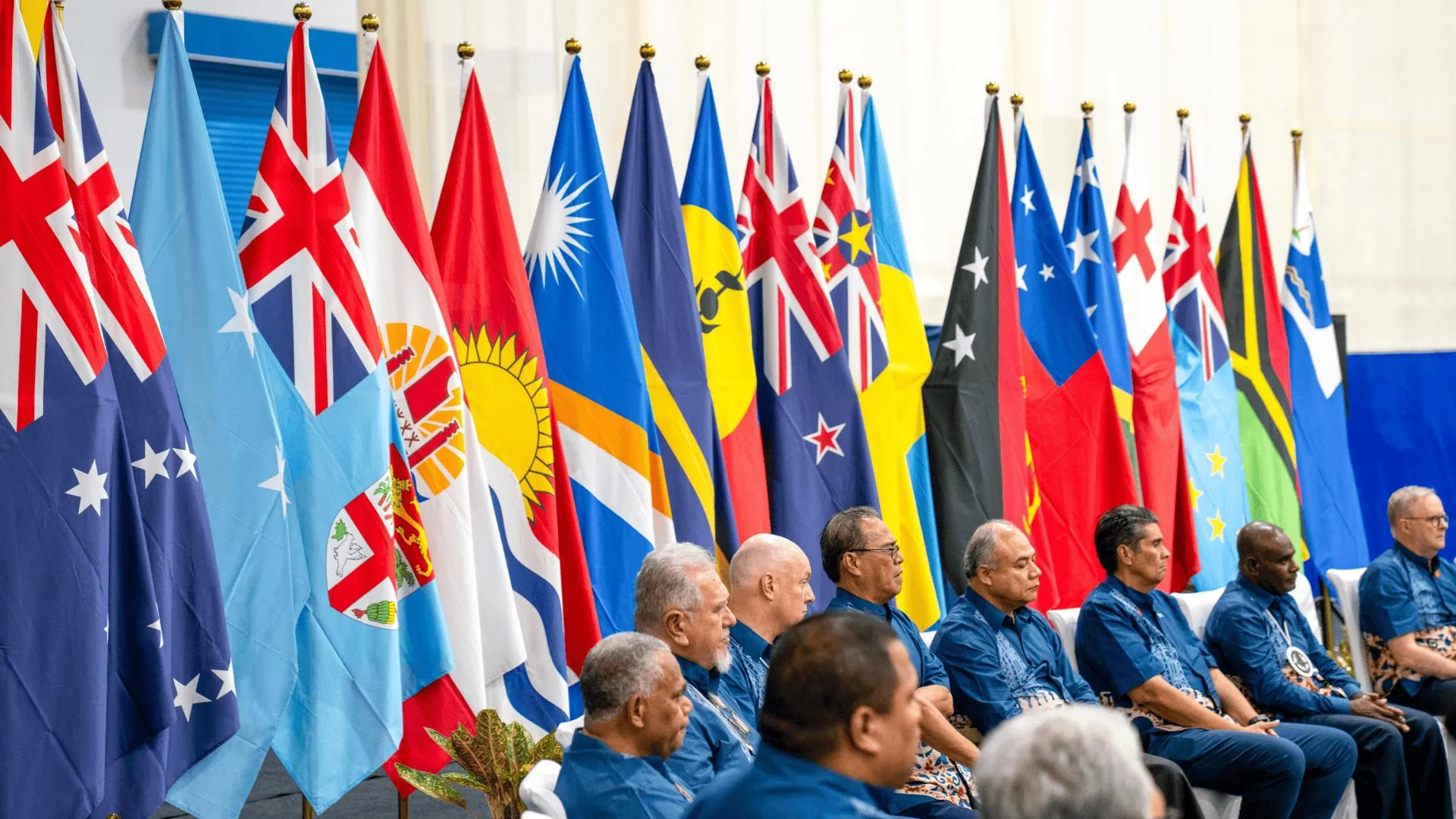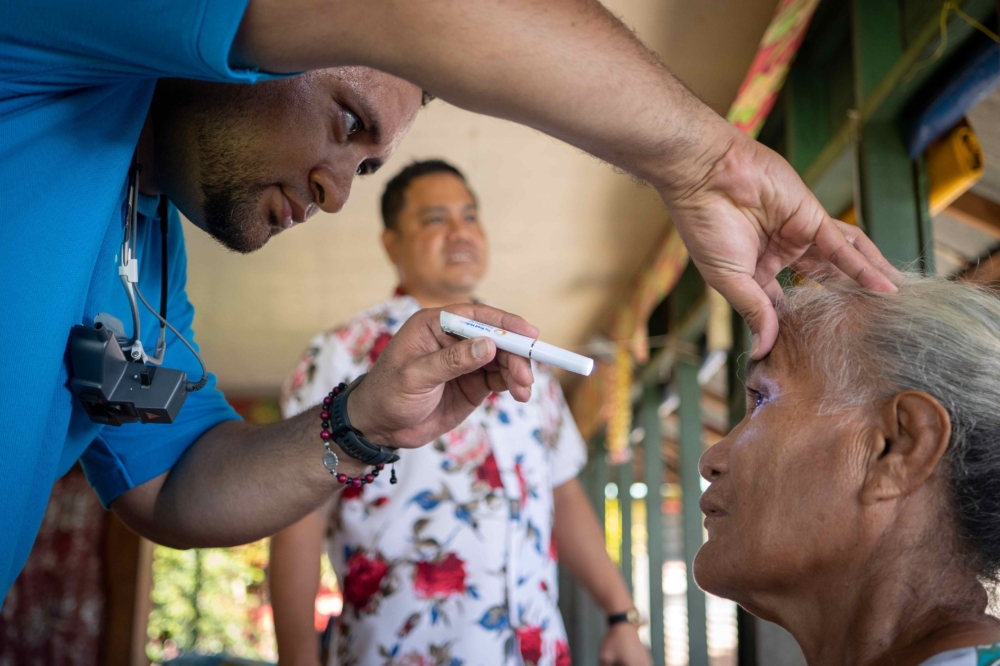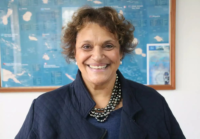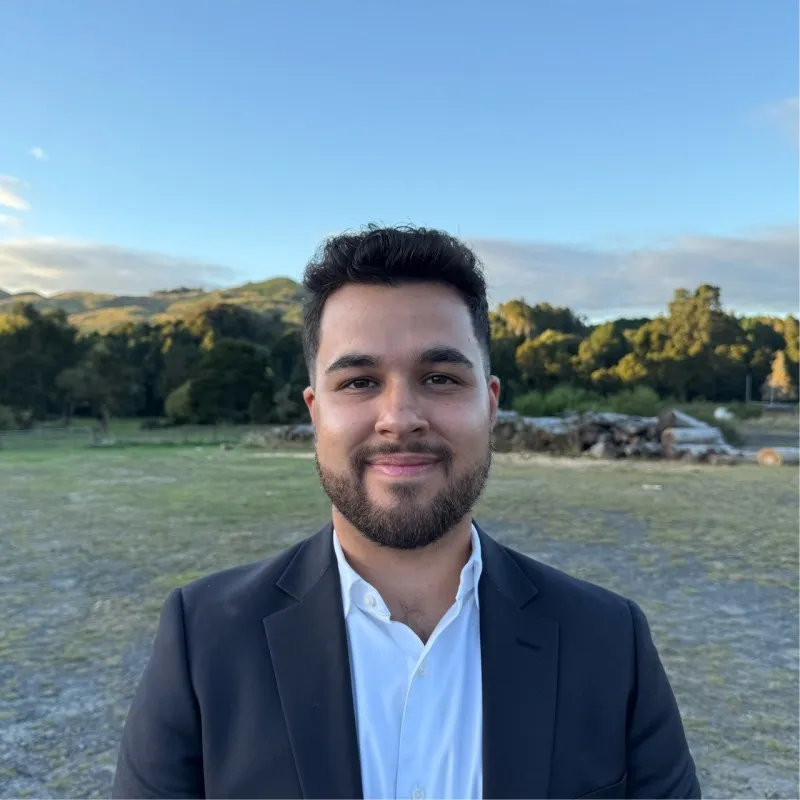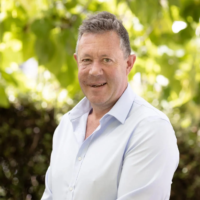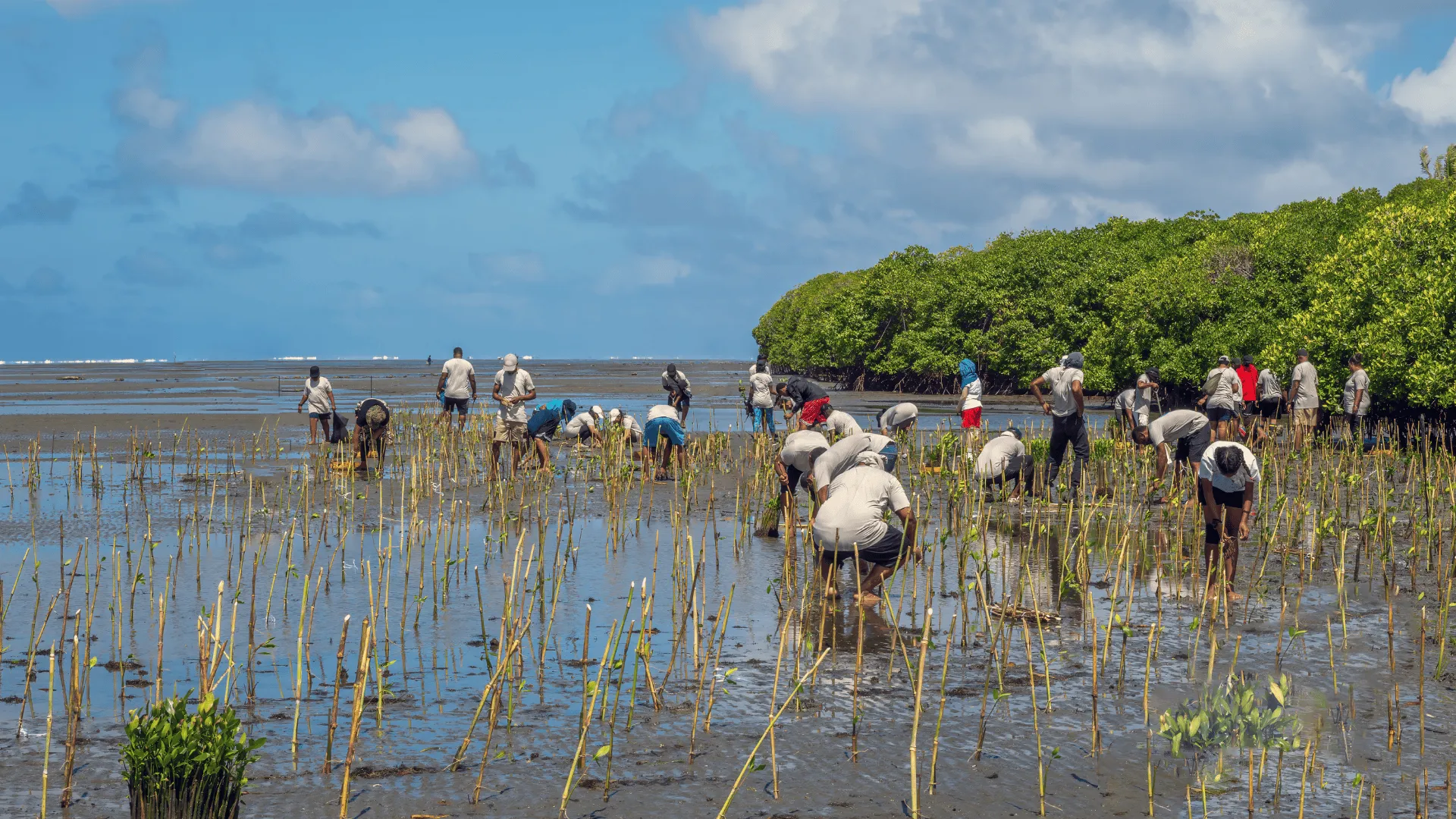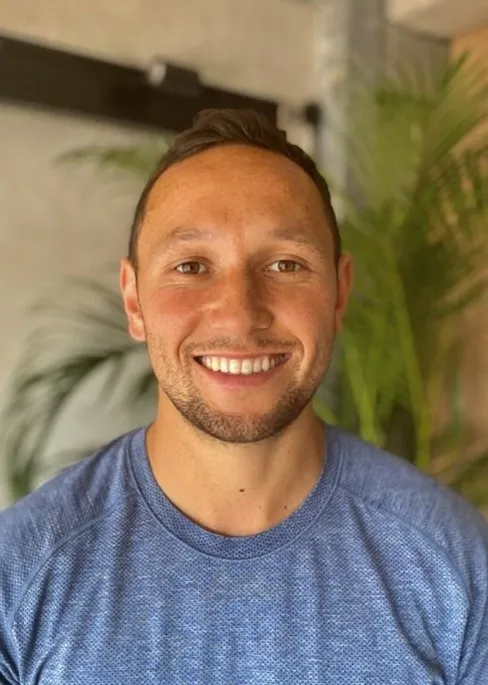Peace through participation: why young women matter in security
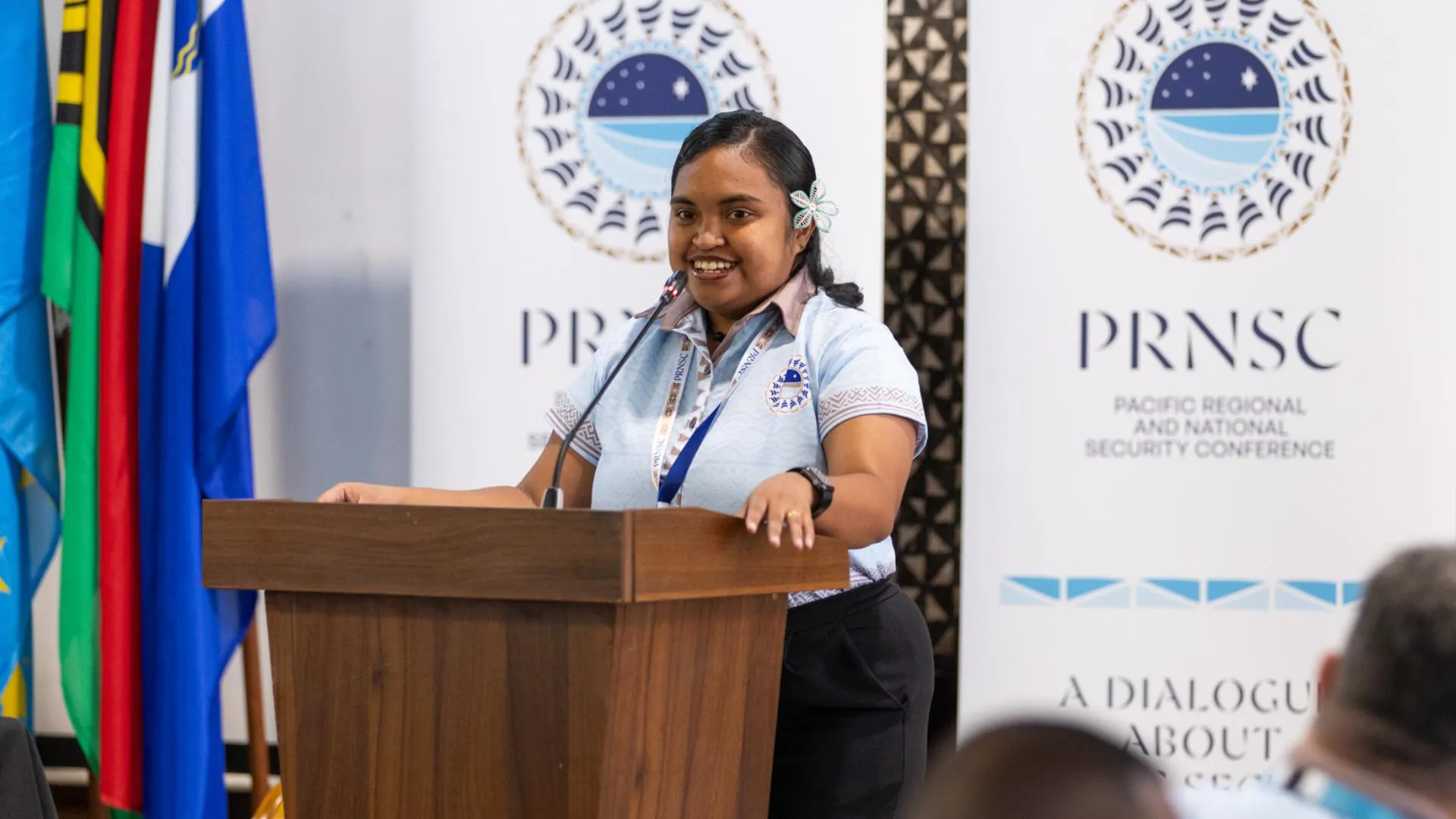
Ayanna Ramarui speaks at the 2025 Pacific Regional and National Security Conference. Photo: Pacific Security College
Growing up, I never imagined working in national security. Peace and security were concepts I read about in textbooks or heard mentioned in news reports – policies and agreements decided by leaders but disconnected from the reality of ordinary people.
I’ve since come to realise that peace and security are not abstract ideas; they are lived experiences that shape every community. They affect whether a community feels safe, whether people can live without fear, and whether nations can trust each other and work together to create a better the future.
Security was never my first career choice. But during my final year of university in Taiwan in 2023, I was invited to give a presentation on US militarism in Palau from a youth perspective. That was when I learned about the newly established Palau National Security Coordination Office. Curious about its purpose, I decided to intern there.
It’s been almost two years since then and I am still with the organisation. As a policy analyst, I’ve come to understand just how critical security is. It is not only about safeguarding our nation, but also about finding ways to address challenges within our borders and across the region.
Of course, being young and a woman in this space has not been without challenges. National security is a male-dominated field. There are moments when people look at me and see only my age and my gender, not my potential. Sometimes they assume I lack the experience or seriousness to contribute.
While these moments can be discouraging, they have also motivated me to learn more, to listen carefully, and to grow into the responsibilities I have been trusted with. It has been a journey of learning, resilience and proving myself. Each challenge has been an opportunity to prove that young women belong in this space. Our voices matter.
Women’s inclusion in peace and security is essential. The Women, Peace and Security agenda reminds us that peace cannot be achieved if women are excluded. We bring perspectives shaped by lived experiences, empathy, and community connection. Young women in particular bring innovation and resilience; qualities urgently needed to navigate today’s challenges.
If we truly want lasting peace, young women must not only be at the table, but actively shaping the solutions. When young women are part of the solution, peace looks different: more inclusive, more innovative, and more sustainable.
I truly believe that the next step for our leaders, policymakers and community representatives is including young people in regional security discussions.
In Palau we say, “A rengeleked a oba klukuk rkid,” meaning “Our children will lead our tomorrow.” These kinds of conversations must involve the voices of young people – because we are not just the leaders of tomorrow, we are also the partners of today. I speak not just for myself, but for many young people across the Pacific who are eager to learn, to contribute, and to be part of shaping a secure and resilient future. We want to be involved in imagining and building the kind of future that reflects our hopes, values, and responsibilities.
From climate change to geopolitical tensions, security touches nearly every aspect of our lives. These issues extend beyond national boundaries, which is why frameworks such as the 2050 Strategy for the Blue Pacific Continent and the Boe Declaration on Regional Security are so important in guiding Pacific nations, including Palau, toward resilience and peace.
It is essential to include the voices of young women in the work of imagining and building a future we can be proud of. If we are serious about preparing for 2050, we must involve the very people who will inherit and continue the work we do today.
With the collective strength of our Pacific community – and the energy and innovation of our youth – we may not have to wait until 2050. Together, we can start turning our shared vision into reality much sooner.
Ayanna Ramarui is a policy analyst within Palau’s National Security Coordination Office, and a founding member of Reng Collective, a youth-led organisation focused on empowering young people in Palau through civic engagement and sustainable development.
This blog is part of a special series marking the 25th anniversary of United Nations Security Council Resolution 1325 on Women, Peace and Security.
Views expressed via the Pacific Wayfinder blog are not necessarily those of the Pacific Security College.
This article is licensed under a Creative Commons Attribution-NonCommercial-NoDerivatives 4.0 International License (CC BY-NC-ND 4.0). Read our publishing policy.
- Themes:
- Women Peace and Security
